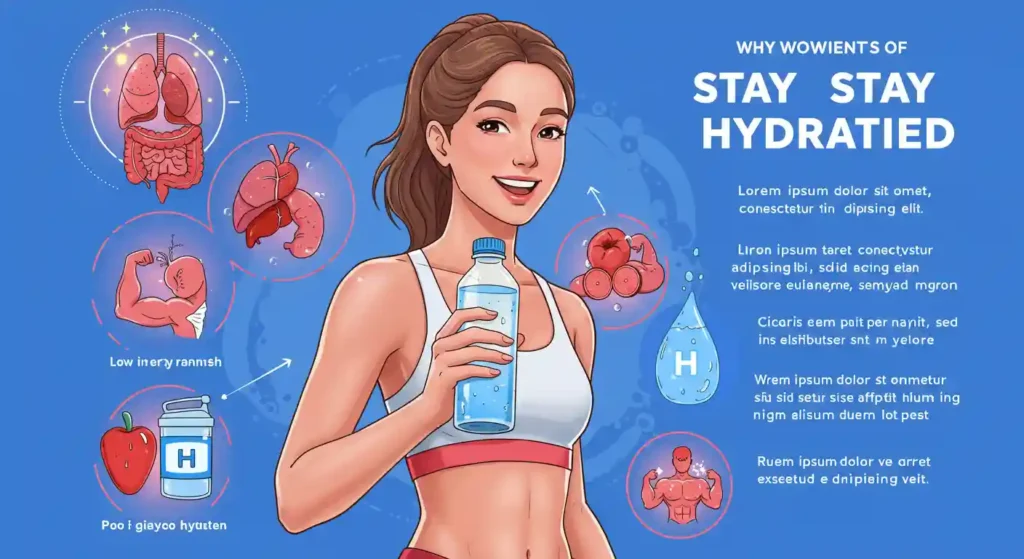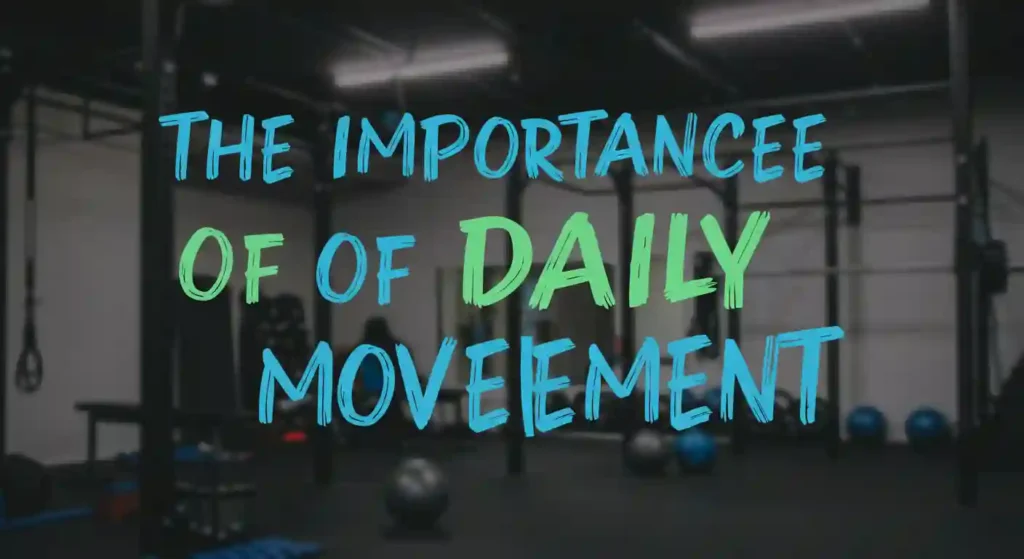
The Power of a Morning Routine
Starting the day with intention sets the tone for everything that follows. Waking up at the same time each morning helps regulate your body’s internal clock, making you feel more energized and focused. Incorporating mindfulness practices such as deep breathing, meditation, or simply enjoying a quiet moment can create a sense of calm and clarity, allowing you to approach the day with a positive mindset.
Table of Contents
Staying Hydrated for Optimal Health

Drinking enough water is essential for maintaining energy levels, improving digestion, and enhancing cognitive function. Hydrating first thing in the morning jumpstarts your metabolism and keeps your body functioning at its best. Throughout the day, staying hydrated supports skin health, prevents fatigue, and helps your body flush out toxins, contributing to overall well-being.
The Vital Role of Hydration in Daily Health
Water is the foundation of life, making proper hydration one of the simplest yet most powerful ways to support overall well-being. Every cell, organ, and system in the body depends on water to function effectively. When hydration levels are optimal, energy remains high, cognitive function improves, and the body efficiently removes waste and toxins.
Drinking water first thing in the morning jumpstarts metabolism and replenishes fluids lost during sleep. This simple habit helps activate internal organs, aids digestion, and sets a healthy tone for the day. Throughout the day, maintaining hydration supports circulation, joint lubrication, and temperature regulation, ensuring that both physical and mental performance remain at their peak.
Lack of hydration, on the other hand, can lead to fatigue, headaches, poor concentration, and sluggish digestion. Even mild dehydration can impact mood and cognitive abilities, making daily tasks feel more challenging. To stay hydrated, it’s important to listen to the body’s signals, consume water-rich foods like fruits and vegetables, and make drinking water a regular part of daily routines.
Incorporating hydration into a well-balanced lifestyle not only improves short-term energy and focus but also contributes to long-term health. Whether through herbal teas, infused water, or simply carrying a reusable water bottle, prioritizing hydration is an easy yet essential step toward overall well-being.
Nourishing Your Body with Healthy Foods

Eating a balanced diet rich in whole, nutrient-dense foods fuels your body and mind. Prioritizing fresh fruits, vegetables, lean proteins, and healthy fats provides essential vitamins and minerals that boost brain function and strengthen the immune system. Practicing mindful eating—paying attention to hunger cues and savoring meals—improves digestion and fosters a healthier relationship with food.
The Importance of Daily Movement

Regular physical activity is crucial for maintaining both physical and mental health. Whether it’s structured exercise, walking, yoga, or dancing, movement strengthens the body, boosts mood, and reduces stress. Exercise releases endorphins, which promote feelings of happiness and relaxation. Finding an activity you enjoy ensures consistency and makes staying active an enjoyable part of your routine.
Prioritizing Quality Sleep

Restful sleep allows your body and mind to recharge, improving cognitive function, emotional balance, and overall health. Sticking to a consistent sleep schedule, creating a calming bedtime routine, and reducing screen time before bed all contribute to better sleep quality. A good night’s rest enhances concentration, boosts energy levels, and supports long-term well-being.
The Key to Rejuvenation: Enhancing Sleep Quality
Sleep is the body’s natural way of healing and restoring itself. Quality rest is essential for physical recovery, mental clarity, and emotional stability. When sleep is disrupted or insufficient, it affects concentration, mood, and overall health, leading to fatigue, irritability, and decreased productivity. Establishing a consistent sleep routine helps regulate the body’s internal clock, making it easier to fall asleep and wake up feeling refreshed.
Top rated products
Creating an ideal sleep environment plays a crucial role in improving rest. A dark, cool, and quiet room promotes deeper sleep, while reducing exposure to screens and bright lights before bed helps signal the brain that it’s time to unwind. Engaging in relaxing activities like reading, meditating, or stretching before bedtime can further enhance relaxation, making it easier to transition into restful sleep.
Poor sleep habits can contribute to long-term health issues such as weakened immunity, weight gain, and increased stress levels. Prioritizing rest by setting a fixed bedtime, limiting caffeine intake in the evening, and avoiding overstimulation at night can significantly improve sleep quality. Over time, developing these habits leads to better energy levels, enhanced cognitive function, and overall well-being.
Practicing Gratitude and Positive Thinking

Gratitude has the power to shift your mindset and reduce stress. Taking time each day to appreciate the good in your life—whether through journaling, reflection, or expressing thanks—fosters a positive outlook. Cultivating optimism strengthens emotional resilience and enhances overall happiness, helping you navigate challenges with greater ease.
Building Meaningful Connections
Strong relationships play a vital role in emotional well-being. Spending quality time with loved ones, engaging in deep conversations, and fostering connections provide a sense of belonging and support. Prioritizing social interactions and nurturing relationships with family, friends, and like-minded communities contribute to long-term happiness and emotional stability.
Balancing Work and Relaxation
Taking breaks and allowing time for rest is essential for preventing burnout and maintaining mental clarity. Engaging in activities that bring joy, such as reading, listening to music, or spending time in nature, helps reduce stress and recharge your mind. Setting boundaries between work and personal life creates a balanced lifestyle that promotes well-being.
Lifelong Learning and Self-Improvement
Expanding your knowledge and learning new skills keep the mind sharp and engaged. Whether it’s reading, taking up a new hobby, or acquiring new expertise, continuous learning boosts confidence and keeps life fulfilling. Staying curious and open to new experiences fosters personal growth and adaptability.
The Power of Continuous Growth and Learning
Lifelong learning is a key ingredient for personal and professional fulfillment. The pursuit of knowledge keeps the mind sharp, strengthens problem-solving abilities, and enhances creativity. Whether through reading, online courses, or hands-on experiences, continuous learning allows individuals to expand their perspectives and stay adaptable in an ever-changing world.
Engaging in new challenges fosters confidence and resilience. Learning a new skill, whether it’s a language, musical instrument, or technical ability, not only improves cognitive function but also provides a sense of accomplishment. Self-improvement isn’t just about acquiring knowledge—it’s about applying it to enhance different aspects of life, from career advancement to personal development.
“Success is not the key to happiness. Happiness is the key to success. If you love what you are doing, you will be successful.” – Albert Schweitzer
Curiosity is the driving force behind growth. Staying open to new ideas and experiences encourages adaptability, making it easier to navigate change and embrace opportunities. Surrounding yourself with inspiring individuals, seeking mentorship, and engaging in meaningful discussions further fuel the journey of lifelong learning.
Investing in continuous education and self-improvement leads to greater confidence, a sense of purpose, and a more enriched life. By making learning an intentional part of daily life, individuals can cultivate a mindset of growth that leads to long-term success and fulfillment.
Spreading Kindness and Giving Back

Acts of kindness benefit both the giver and the receiver. Helping others—whether through volunteering, offering support, or simply showing compassion—creates a sense of fulfillment and strengthens social bonds. Small gestures of kindness contribute to a more positive and connected community, enhancing overall well-being.
By incorporating these habits into your daily life, you can cultivate a healthier, more balanced, and fulfilling lifestyle. Small, consistent actions lead to lasting improvements in physical, mental, and emotional health, allowing you to thrive in all aspects of life.





